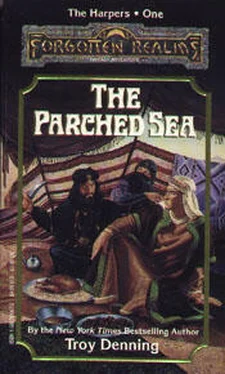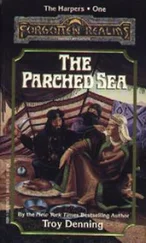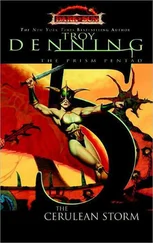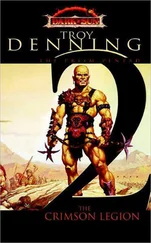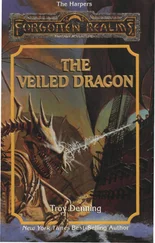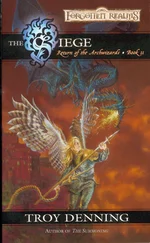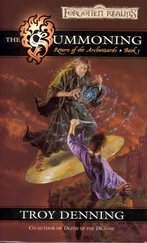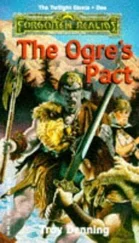Troy Denning - The Parched sea
Здесь есть возможность читать онлайн «Troy Denning - The Parched sea» весь текст электронной книги совершенно бесплатно (целиком полную версию без сокращений). В некоторых случаях можно слушать аудио, скачать через торрент в формате fb2 и присутствует краткое содержание. Жанр: Фэнтези, на английском языке. Описание произведения, (предисловие) а так же отзывы посетителей доступны на портале библиотеки ЛибКат.
- Название:The Parched sea
- Автор:
- Жанр:
- Год:неизвестен
- ISBN:нет данных
- Рейтинг книги:3 / 5. Голосов: 1
-
Избранное:Добавить в избранное
- Отзывы:
-
Ваша оценка:
- 60
- 1
- 2
- 3
- 4
- 5
The Parched sea: краткое содержание, описание и аннотация
Предлагаем к чтению аннотацию, описание, краткое содержание или предисловие (зависит от того, что написал сам автор книги «The Parched sea»). Если вы не нашли необходимую информацию о книге — напишите в комментариях, мы постараемся отыскать её.
The Parched sea — читать онлайн бесплатно полную книгу (весь текст) целиком
Ниже представлен текст книги, разбитый по страницам. Система сохранения места последней прочитанной страницы, позволяет с удобством читать онлайн бесплатно книгу «The Parched sea», без необходимости каждый раз заново искать на чём Вы остановились. Поставьте закладку, и сможете в любой момент перейти на страницу, на которой закончили чтение.
Интервал:
Закладка:
"How many men does it require to fetch you, my husband?" the bride asked, irritated by the intrusive gathering outside the khreima. Though Ruha had addressed Ajaman, she had intentionally spoken loud enough for the men to hear. They tried to pretend they had not heard her complaint, as it was forbidden for a bride in purdah to speak directly to any man except her husband. Despite their efforts, several men could not stifle snickers.
Ajaman raised an eyebrow, but did not seem upset by Ruha's audacity. He covered the appearance of impropriety by repeating her question, "My wife wishes to know how many men are required to summon me."
"More than we have brought, apparently," the deep-voiced man returned. "To keep you from your duty, she must truly be as beautiful as her father promised."
Ruha smiled at the man's comment. Her father had also promised her that she would be pleased with Ajaman. So far, it appeared that her sire was as skilled at matchmaking as at camel herding.
Picking up his quiver and bow, Ajaman beamed at his new bride. "Indeed, my wife's father comes from an honorable family," he called. "It is a pity you cannot see how well he keeps his promises, Dawasir. My words cannot describe her."
Ruha's smile vanished with her husband's words. The comment made her feel as if she were on display. Like all Bedine women, Ruha reserved her beauty for her husband's eyes alone. Outside her home, the curves of her firm body would always remain concealed beneath her baggy aba. A shawl and veil would hide her sable hair, her proud nose, and the strong features of her statuesque face. All Dawasir or his comrades would ever see of Ruha were her sultry eyes and, perhaps, the crossed hash marks tattooed on her regal cheeks. She could not help feeling betrayed by Ajaman's boasting.
Ruha caught her spouse by his sleeve and pulled his ear close to her mouth. "If you don't watch your tongue, my husband," she whispered, "your friend Dawasir is not the only one who won't see how well my father keeps his promises." Her tone was serious enough to make Ajaman heed her words, but also light enough not to sound like an insult or challenge.
Ajaman clutched at his breast, feigning a wound. "Your words have pierced me deeper than a raider's arrow," he responded, his mouth upturned in a roguish smile. "I shall die with your name upon my lips."
Laughing, the bride pressed her mouth to her husband's. "I'd rather you die with my kiss on your lips than my name."
Ruha retrieved Ajaman's amarat from its hook. Before giving it to him, she stopped to run her hand along its hand-carved curves. The horn was already the source of her fondest memory, for when Ajaman had come to claim her as his bride, he had announced his arrival by sounding the amarat a mile outside the Mtair Dhafir's camp. Its brazen tones had been Ruha's first hint that she would like her new husband, for she had not even met him before he came to take her away.
Their marriage had been arranged by fate, or so her father claimed. A waterless summer in the north had driven Ajaman's tribe, the Qahtan, into the sands traveled by the Mtair Dhafir. Instead of chasing the strangers away, Ruha's father had proposed an alliance. In return for the Qahtan's promise to return north at summer's end, the Mtair Dhafir would share their territory for a few months. The bargain had been sealed by Ruha's marriage to Ajaman, the son of the Qahtan's sheikh by his second wife.
What the Qahtan had not realized was that they were solving another problem for their new allies. Witches were no more welcome in the Mtair Dhafir than any other Bedine khowwan, and Ruha had always been a problem for her father. When the strangers wandered into Mtair territory, the sheikh seized the opportunity to marry his daughter into a tribe that had no way of knowing about the visions she suffered. Of course, her father was risking a blood feud if the Qahtan ever found out that she was a witch. Since it was in the best interest of everyone involved in the deception to keep the matter hidden, he was willing to make the gamble. It was a risk that Ruha intended to see that he never regretted.
As she hung her husband's horn around his neck, Ruha pushed him toward the khreima exit. "You'd better go before Dawasir comes in to get you," she whispered. "I'll join you after dark."
"Don't let anyone see you," Ajaman said, turning to leave. "It might not dishonor our family, but it would embarrass me."
Ruha shook her head at his unnecessary concern. Ajaman had no need to worry, but could not be blamed for his apprehension. He did not realize that his wife could shroud herself in the shadow of a dune, or that an owl would envy the silence with which she slipped through the desert night. The young husband could not have known these things, for he did not know of the magic that made them possible or of the old woman who had taught Ruha how to use the spells.
Ruha's marriage to Ajaman was not the first time her father had tried to find another place for her to live. Her mother had died when she was only five. Because of her premonitions, none of the sheikh's other wives would agree to raise her. Her father was left with no choice but to give up the young girl. He led the tribe to a remote watering hole where an old witch lived in exile.
Like most "shunned women," the witch was lonely, so she gladly agreed to take the child as her own. With a peculiar blend of love and forgetful indifference, Qoha'dar set about teaching Ruha how to survive alone in the desert-a talent that relied heavily on the use of magic. By the time Ruha reached the age between childhood and womanhood, she could conjure sand lions, summon wind dragons, and scorch her enemies with the heat of the desert.
In Ruha's sixteenth year, Qoha'dar passed away. For several months, the lonely girl pored over Qoha'dar's books. Without the old woman to explain the runes and act as a guide, however, most of the effort was wasted. In all that time, Ruha learned only how to make a wall from wind and dust.
After accidentally enlarging a scorpion to the size of a camel and spending twenty-four hours hiding from it in a rock crevice, Ruha realized that sand magic was no substitute for companionship. She decided to return to the Mtair Dhafir, pretending that her premonitions had stopped.
Ruha made copies of her favorite spells by sewing them inside her aba, then hid her mentor's books in the foundation of an ancient ruin. As much as she hated to abandon tomes of such value, there was no other choice. If she brought the books along, her tribe would never believe her curse was gone.
Unfortunately, after spending a year locating her father's khowwan, she discovered that the memories of her tribesmen were long. Less than a week after Ruha had entered camp, half the families threatened to leave if she remained. Although the sheikh had no desire to abandon his child, he was forced to consider the wishes of the malcontents. If he allowed the khowwan to split, both halves would become easy prey for raiders from other tribes.
He had called Ruha to his side, no doubt to ask her to leave. Before he could force himself to bring up the painful subject, a pair of herdboys burst into the tent to report the presence of an unfamiliar tribe at El Ma'ra oasis. Because El Ma'ra was one of two other oases located within a two-day ride of the Mtair Dhafir, the news would normally have been received with alarm. Unallied Bedine tribes seldom camped so close together, for their camels would compete for pasturage and the close proximity would make raiding a virtual certainty.
Instead of receiving the news with a frown, however, Ruha's father had smiled broadly. He sent a messenger to arrange a meeting with the strange tribe, then told Ruha to prepare herself for a new life. Seven days later, Ajaman's amarat had sounded outside camp as he came to fetch his bride.
Читать дальшеИнтервал:
Закладка:
Похожие книги на «The Parched sea»
Представляем Вашему вниманию похожие книги на «The Parched sea» списком для выбора. Мы отобрали схожую по названию и смыслу литературу в надежде предоставить читателям больше вариантов отыскать новые, интересные, ещё непрочитанные произведения.
Обсуждение, отзывы о книге «The Parched sea» и просто собственные мнения читателей. Оставьте ваши комментарии, напишите, что Вы думаете о произведении, его смысле или главных героях. Укажите что конкретно понравилось, а что нет, и почему Вы так считаете.
